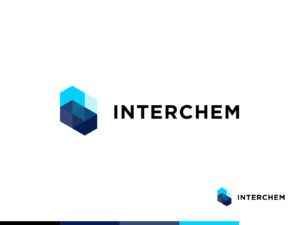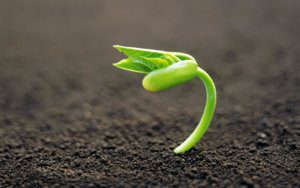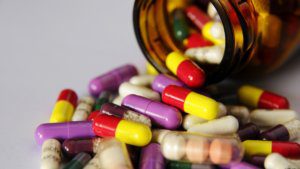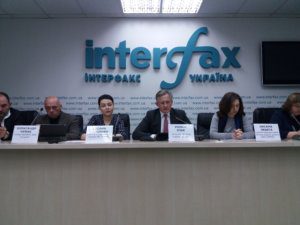
Zhovtnevy district court in Mariupol has declared inaccurate information regarding Interchem pharmaceutical company (Odesa) posted by one of Odesa websites.
According to the press service of the pharmaceutical company, the court issued such a decision, having considered the suit of Interchem regarding the article “Does the Odesa enterprise kill Ukrainian youth?”
Interchem noted that this text was made public on one of the online portals in Odesa, 048.ua, and then was actively disseminated on the Internet in order to put pressure on the enterprise.
“Interchem pharmaceutical company was called the manufacturer of cheap drugs in the report. It was pointed out that its director general Anatoliy Reder was repeatedly involved in criminal proceedings, there was also other information discrediting honor and dignity. After the authors [of the article] had failed to confirm the information, the court obliged the owner of the resource to refute the report,” the company said.
The court satisfied the claims on recognizing the disseminated information as false, violating the honor, dignity and business reputation of Reder and Interchem.
Interchem is one of the leading pharmaceutical companies in Ukraine. It was founded in 1992. It is the only Ukrainian manufacturer of medicines for hard and cancer patients, as well as one of the drug suppliers under the Global Fund to Fight AIDS, Tuberculosis and Malaria programs.

Pharmaceutical company PJSC Farmak (Kyiv) is exploring opportunities of exporting active pharmaceutical ingredients (APIs, substances). The company may ship the first batches of APIs as early as late in 2019, Head of Farmak’s API Department Vasyl Kushniruk said during a press tour to the town of Shostka in Sumy region, where the company has an APIs production facility. “There are no sales today, but we plan to start selling in October this year and ship first tonnes of the substances,” he said.
If necessary, Farmak may triple API output, he said. “We have premises where we are ready to deploy lines to produce APIs if there is a sales market. Over a year we can triple our planned capacity,” he said. “Before last year, the company was not involved in sales of substances and we didn’t plan to sell them, but we have already got several requests that showed that there is demand for the purchase of substances, in particular, in the European market, and we are studying this issue,” he said.
Farmak’s investment in the organization of production of APIs in Shostka in 2010-2017 amounted to $40 million.
Farmak started producing APIs at the Svema industrial park in Shostka in 2015. The production meets environmental and GMP standards. In 2018, emissions of pollutants into the air by the API production department in Shostka amounted to only 1.9 tonnes per year, which is within the established limits. Of these emissions, 99% are those from the boiler house.
Farmak’s API production facility in Shostka is equipped with modern equipment and the latest air and water purification systems with a purity level of 95-99%. Its equipment was supplied by such well-known European brands as MVB and GEA. Thanks to modern sewage treatment plants of famous brands, the company’s impact on the environment is minimum.
In 2017, Farmak produced about 80 tonnes of APIs.
As was reported, PJSC Farmak opened a new production site for tablet production in December 2018, investment in amounted to EUR 20 million. The site will allow Farmak to double the capacity for the production of solid dosage forms, to 3 billion units per year.
By 2023, Farmak plans to increase exports to 40%. Currently, the share of Farmak’s exports is more than 25% of total sales.
PJSC Farmak is among Ukraine’s top three pharmaceutical producers and is a member of the Association Manufacturers of Medications of Ukraine (AMMU).
PJSC Farmak’s beneficiary is Chairperson of PJSC Farmak’s supervisory board Filia Zhebrovska. She owns 80% of the company’s shares.
In 2017, Farmak increased sales in the country’s retail pharmaceutical market by 21% in monetary terms. Its net profit grew by 29.9%, to UAH 839.09 million.

The Ukravit Group, a large producer of plant protection agents and micro-fertilizers in Ukraine, has started working in the pharmaceutical and food supplements sphere.
“We entered Chemical Elements Ukraine as owners and partners. This is a Cherkasy-based producer and exporter of raw materials for the pharmaceutical market, former Khimreaktiv. We entered this company with 30% [of shares]. Starting this year we are working in the new sphere for us – pharmaceutical,” Marketing Director Anatoliy Kalantarian told reporters during the ceremony to open a research and development center in Cherkasy.
At the same time, he said that Ukravit intends to produce biologically pure supplements, which in the future will be exported. “We are already negotiating deliveries with some countries, including with the Middle East,” Kalantarian said. According to him, the intellectual base for creating products will be in the research center, production capacities will be new and located in Cherkasy.
In addition, Kalantarian said that in 2019, Ukravit will start selecting their own hybrids of seeds, as well as work on the creation of bio-pesticides. “We are going to cooperate with international scientific institutions when developing products. We are already working with the institute from Switzerland. We are negotiating with Spain, Israel and the United States. We have strategic plans for cooperation with the global scientific community,” he said.
Ukravit is engaged in production and sale of pesticides, fertilizers with microelements, means for destruction of rodents and domestic insects. The group includes Factory of Agrochemicals LLC (Cherkasy) which produces plant protection agents and micro-fertilizers. It produces more than 150 items of products.

Ukraine in January-February 2018 considerably increased exports of medicines to Russia, cutting their imports from the country. According to the State Statistics Service, in January-February 2018, Ukraine exported medicines for $3.5 million to Russia, which is 18% more than a year ago. Imports of medicines from Russia to Ukraine over the period fell by 40.4%, to $2.85 million.
Last year Ukraine exported medicines to Russia for $27.89 million, which is 31.9% more than a year ago, and imported medicines for $29.79 million from Russia (15.9% down). In 2017, Ukraine exported medicines for $171.17 million, including to the CIS for $143.057 million.
As reported, at present, because of the sanctions imposed on Russia, Russia is discussing the ways of replacing imported medicines and reducing dependence on foreign pharmaceutical companies. The decline in the imports of Russian medicines to Ukraine began after the introduction of the requirement of compliance of drugs with GMP standards in Ukraine.

Ukrainian pharmaceutical manufacturers have noted the need to resolve a number of issues related to the filling and application of the national list of essential medicines. Marketing and Sales Director of PJSC Farmak Susana Khalilova noted at present market participants do not have clear understanding of whether there will be the expansion of nosologies, according to which international nonproprietary names (INN) are included in the list, as well as the expansion of the number of molecules on the nosologies already included in the list.
“Currently we have the opportunity to apply for molecules, but we do not understand how we can justify the introduction [of drugs] for new nosologies, for example such as infertility, diabetes insipidus,” she said at a press conference at Interfax-Ukraine. Khalilova also emphasized the need to return the Fast Track procedure and simplify the introduction of changes regarding INN included in the list.
Commenting on the problem of applying the updated list at the local level, in particular the norm on 100% compulsory provision with drugs from it, she noted the difficulty of “how the coverage of this 100% need can be showed.”
Head of InterChem-Pharma Trading House Oleksandr Chumak, in turn, expressed the opinion about the need to approve such an edition of the list that would allow the Ukrainian market to plan its production.